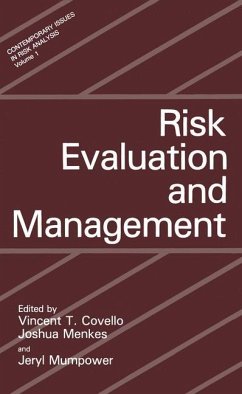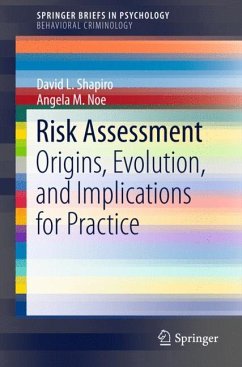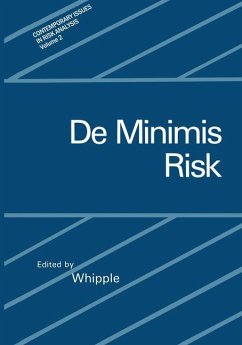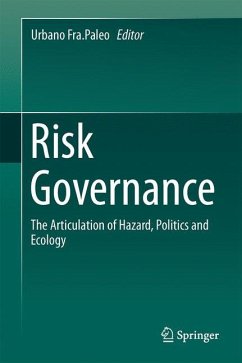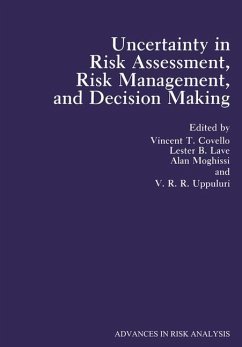
Uncertainty in Risk Assessment, Risk Management, and Decision Making

PAYBACK Punkte
39 °P sammeln!
The subject of this volume--uncertainties in risk assessment and management--reflects an important theme in health, safety, and environ mental decision making. MOst technological hazards are characterized by substantial uncertainty. Recent examples include nuclear waste disposal, acid rain, asbestos in schools, carcinogens in food, and hazardous waste. realing with such uncertainty is arguably the most difficult and challeng ing task facing risk assessors and managers today. Four primary sources of uncertainty in risk assessment and management can be identified: (1) uncertainties about definit...
The subject of this volume--uncertainties in risk assessment and management--reflects an important theme in health, safety, and environ mental decision making. MOst technological hazards are characterized by substantial uncertainty. Recent examples include nuclear waste disposal, acid rain, asbestos in schools, carcinogens in food, and hazardous waste. realing with such uncertainty is arguably the most difficult and challeng ing task facing risk assessors and managers today. Four primary sources of uncertainty in risk assessment and management can be identified: (1) uncertainties about definitions; (2) uncertainties about scientific facts; (3) uncertainties about risk perceptions and atti tudes; and (4) uncertainties about values. Uncertainties about definitions derive primarily from disagreements about the meaning and interpretation of key concepts, such as probability. Uncertainties about scientific facts derive primarily from disagreements about failure modes, the probability and magnitude of adverse health or environmental consequences, cause and effect relationships, dose-response relationships, and exposure patterns. Uncertainties about risk perceptions and attitudes derive primarily from disagreements about what constitutes a significant or acceptable level of risk. Uncertainties about values derive primarily from disagreements about the desirability or worth of alternative risk management actions or conse quences. The papers in this volume address each of these sources of uncertainty from a variety of perspectives. Reflecting the broad scope of risk assess ment and risk management research, the papers include contributions from safety engineers, epidemiologists, toxicologists, chemists, biostatisticians, biologists, decision analysts, economists,psychologists, political scien tists, sociologists, ethicists, and lawyers.





